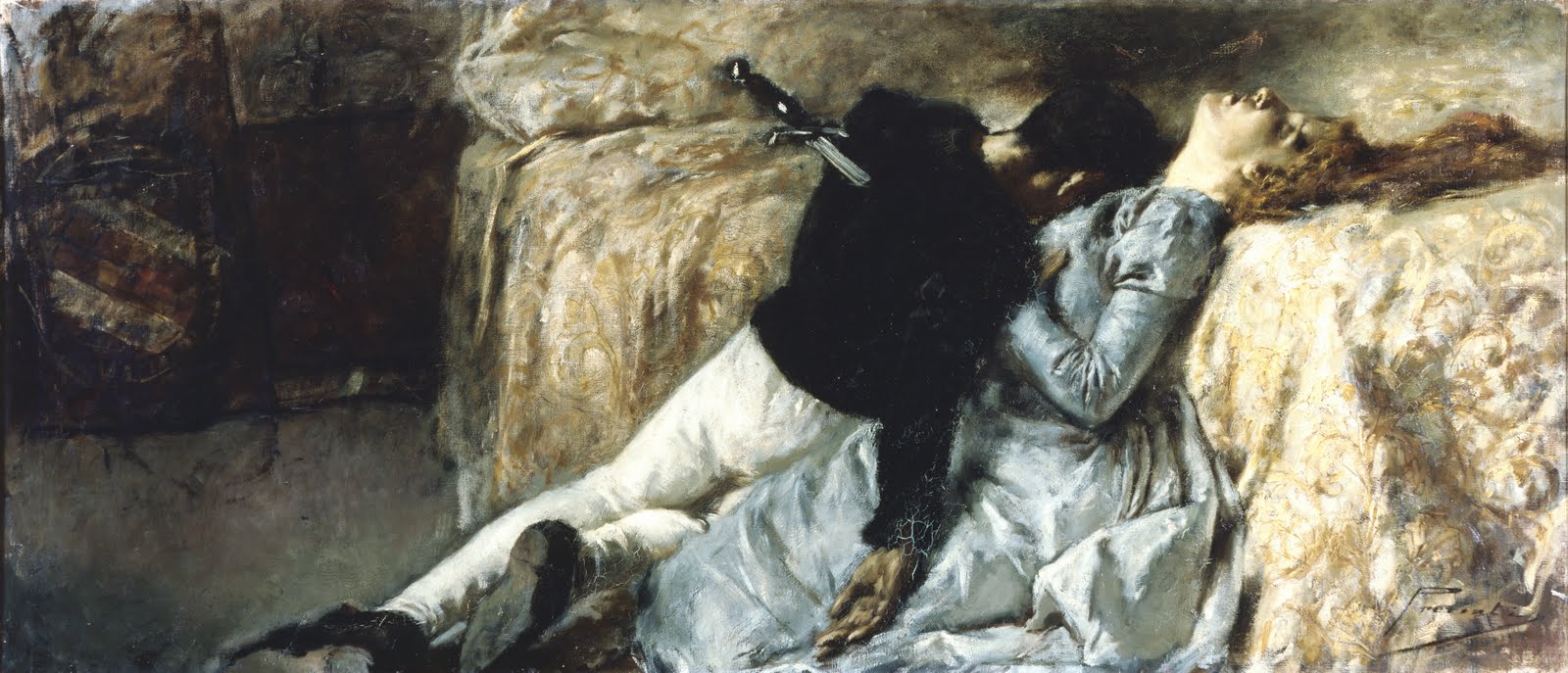|
English
525: Love and its Critics
Dr. Michael
Bryson
Sierra Tower
832
818-677-5695
michael.bryson@csun.edu

Course Description
This course is an attempt to tell a story,
to relate a history of love through literature and its sometimes
adversarial relationship to the laws and customs, the political and
economic structures of the times and places in which that literature
was produced. But it also attempts to relate a history of the way
love has been treated, not by our poets, but by those our culture has
entrusted with the “authority” to maintain and perpetuate the
understanding, and even the memory, of poetry. Together with the
tradition of love poetry has grown a tradition of criticism that tends
to subordinate human passion and desire to the demands of theological,
philosophical, and political considerations, often arguing that what
merely seems to be passionate love poetry is actually properly
understood as something else (worship of God, subordination to Empire,
entanglement within the structures of language itself). The pattern of
such criticism—from the earliest readings of the Song of Songs
to contemporary articles written about a carpe diem poem like Robert
Herrick’s “To the Virgins to Make Much of Time”—is to argue that the
surface or exterior of a poem hides the “real” or “deeper” meaning,
and that it is the critic’s job to pull back or tear away that surface
in order to expose what lies beneath it. Employing a method Paul
Ricouer called “les herméneutiques du soupçon” (the hermeneutics of
suspicion), such a reading strategy is a matter of cunning
(falsification) encountering an even greater cunning (suspicion), as
the "lies" and "false consciousness" of a text are systematically
"exposed" by the critic. The argument of this course is that there is
a long tradition of literary criticism that insists that poems about X
(in this case, human love) are actually about Y (whatever the
particular concern or commitment of the critic is), and that such
criticism is and has been an impediment, not an aid, to understanding.
Assignments
Each student will do two assignments.
1) A midterm essay of 1500-2000 words
(approximately 5-8 pages) focusing on a critical history of one of the
works from the Song of Songs through the Italian poets, due
at the beginning of class on 11/17. Do not simply skim the surface of
JSTOR looking for things published over the last ten years. Go back as
far as you can, researching the history of the text and its reception,
and look for an interesting story to tell.
2) A final paper
of 3000-4000 words (10-15 pages), topic open (as long as it remains
within the parameters of the course), due by 11:59:59 PM Sunday,
12/18. This final paper must be submitted via email.
Weekly
Preview
Week 1 (9/1): Introductions. The
Hermeneutics of Suspicion; Love Poetry and its Critics.
Reading:
1) Rita Felski, "Suspicious Minds."
2) Rita Felski, "After Suspicion."
3) Love and its Critics:
Introduction
Week 2 (9/8):
Origins and Origen (and a Rabbi named Akiba)
Reading:
1) The Song of Songs:
The World's First Great Love Poem, eds. Ariel and Chana
Bloch.
2)
Criticism: Origen, Zhang
Longxi, Gerson Cohen
Week 3 (9/15):
Ovid, Love as a Game, and Critics with No Sense of Humor
Reading:
1) Selections from Ovid: Amores
1.4, 1.5, 1.13, 3.4. Art of Love
Book One
2)
Critics and their Discontents, part 1
Week 4 (9/22):
Virgil, Obedience over Love
Reading: 1) The Aeneid
1.850-2.998, 4.1-876.
Reading: 2) Ovid,
Heroides 7
Reading: 3) Critics
and their Discontents, part 2
Week 5 (9/29):
Love Poetry in the Post-Latin World: Greek Romance and Two Anglo-Saxon
Elegies, and Greek Romance
Reading:
1) Longus, Daphnis and Chloe
2) Two
Anglo-Saxon Elegies
3) Criticism: Miriam
Muth
Week 6 (10/6): Love Against the World:
Abelard and Heloise
Reading:
1) The Letters of Abelard and
Heloise (pp.3-89, Letters 1-5).
2) Critics and their
Discontents, part 3
Week 7 (10/13):
The Troubadours
Reading:
1) Troubadour Poems from the
South of France, pp. 24-31, 52-57, 70-81, 107-11, 119-20, 155-62.
2) Female Poets
and Female Voices, a Different Perspective
3)
Critics and their Discontents, part 4
Week 8 (10/20):
Love Goes to Heaven: Early Italian Poets
Reading:
1)) Plato: The Symposium
2) A sample of
Italian Poets from Lentino to Dante
3) La Vita Nuova
from The Portable Dante
Week 9 (10/27):
Love Goes to Heaven, part 2: Petrarch
Reading:
1) Petrarch, Canzoniere
# 3, 11, 12, 13, 36, 90, 106, 121, 133, 183, 364 from Petrarch Canzoniere, ed. Mark Musa.
2) Castiglione, The Book of the
Courtier, Book Four, 322-345.
Week 10 (11/3): Sixteenth-Century Poetry:
Love Slowly Returns to Earth
Reading:
1) A Sample
of non-English poetry of the Sixteenth Century
2) Sidney, Astrophil and Stella
from The Major Works.
Week 11 (11/10): Shakespeare
Reading:
1) Selections from Shakespeare, from
The Sonnets. 1-20, 130, 138.
Week 12 (11/17):
Donne
Reading:
1)
Selections from Seventeenth-Century British Poetry:
"On His Mistress Going to Bed," "The Canonization," "The Extasie,"
"The Sun Rising," "The Flea."
2)
Lawrence Stone, The Family, Sex, and Marriage in England, 1500-1800.
See pages 178-194 for a description of parentally-arranged and
-controlled marriages of the period.
3) Criticism:
Achsah Guibbory
4) Critics and their
Discontents, part 5
Week 13 (11/24):
Off for Thanksgiving
Week 14 (12/1):
Herrick, Marvell
Reading:
1) Selections from Seventeenth-Century British Poetry: Herrick, "To the
Virgins," "To Daffadills," "Delight in Disorder," "Corinna’s going a
Maying," Marvell, "To His Coy Mistress."
2) Criticism:
Sarah Gilead
3) Critics and their
Discontents, part 6
Week 15 (12/8)
Conclusions and Choices: Milton's Adam
Reading:
1) Paradise Lost
8.530-585, 9.886-959
2) Criticism: C.S.
Lewis, Irene Samuel,
Stanley Fish, Dennis Danielson
3) Critics and their
Discontents, part 7
|